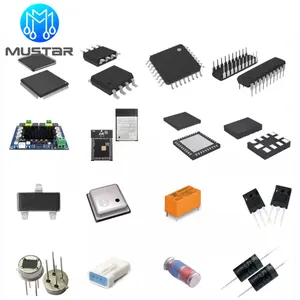

Mustar Brand One-stop Bom List Service For Electronic Components Integrated Circuits IC Chips Transistors Etc In China


One-Stop Package Service Electronic Components Integrated Circuits Capacitors Resistors Connectors Transistors






















Transistors are the fundamental building blocks of modern electronic devices, and Philips transistors stand out in this category for their reliability and performance. These components act as crucial gatekeepers in circuits, controlling and modulating the flow of electrical currents with precision. With configurations such as PNP and NPN, Philips transistors cater to a diverse range of electronic applications.
The configuration of a transistor is pivotal to its function. Philips transistors come in both PNP and NPN varieties, each suited to specific circuit requirements. The PNP type, such as the 2n5401 Philips, is often used when a positive voltage needs to be switched or amplified. Conversely, NPN transistors, like the widely recognized 2N2222, are typically employed for negative voltage applications. These configurations determine the flow of electrons through the transistor's three main components: the collector, base, and emitter.
The application spectrum of Philips transistors is vast, ranging from acting as switches and amplifiers to oscillators in circuits. The bd139 Philips transistor, for instance, is known for its efficacy in amplification roles. On the other hand, the versatility of Philips transistors is further exemplified by the variety of types available. Bipolar junction transistors (BJTs) and field-effect transistors (FETs), including HEMT and MOSFET, are part of this extensive lineup, each with unique electron transport mechanisms.
Philips transistors are designed with materials that ensure stability and durability under various electrical conditions. Each transistor type has a specific tolerable range for current and voltage, which is crucial for the safety and longevity of both the component and the device it operates within. It is essential to refer to the datasheet of the specific Philips transistor price to understand its electrical characteristics and ensure compatibility with your project.
Choosing the correct transistor is critical for the success of any electronic project. Factors such as current handling, voltage requirements, and switching speeds must be considered. For instance, a 2n7000 Philips transistor might be the right choice for a low-power switching application. It is advisable to consult with various suppliers on Alibaba.com to find the transistor that best fits the circuit's needs without any compromise on performance.
The advantages of incorporating Philips transistors into your projects are manifold. They offer a balance of efficiency and reliability, which is essential for both commercial and industrial applications. Furthermore, the broad selection of transistors available ensures that there is a Philips component suitable for nearly any electronic design challenge.